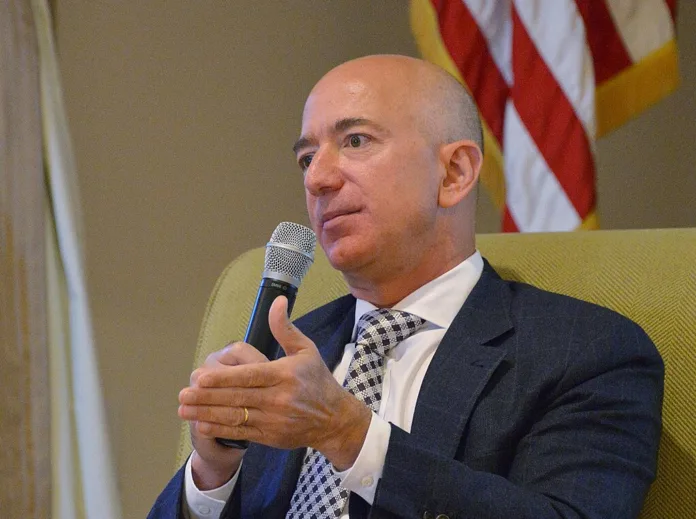As the ISS prepares for a dramatic deorbit in 2031, Bezos’s commercial space station promises to lead a new era of orbital exploration.
Jeff Bezos is ready to replace the International Space Station (ISS) with a ground-breaking commercial space station, pledging a staggering $100 billion investment. This ambitious project comes as NASA prepares to retire the ISS, marking the end of an era for the iconic research hub. By 2031, the ISS will be intentionally deorbited, and its fiery descent will close the chapter on a 32-year journey of scientific discovery.
For decades, the ISS has been humanity’s crown jewel in space, orbiting Earth as a beacon of international collaboration. It hosted scientists from around the globe, enabling cutting-edge research in microgravity that revolutionised medicine, engineering, and astrophysics. But like all great missions, its time is drawing to a close. NASA has contracted Elon Musk’s SpaceX with a hefty $843 million deal to safely guide the ISS to its final resting place in the Pacific Ocean.
Embed from Getty ImagesWhile one era ends, another is poised to begin. Enter Jeff Bezos. His vision for the future takes shape in the form of the world’s first commercially owned and operated space station. Unlike its government-funded predecessor, this station will be a beacon of private innovation. It will host scientific experiments, industrial research, and even space tourism, making low-Earth orbit more accessible to businesses, researchers, and adventure-seekers alike.
The project is monumental. The station, which could launch within the next few years, aims to secure the future of human presence in space. Bezos’ ambition underscores a dramatic shift in the space industry, where private companies are no longer mere suppliers to government agencies but are emerging as dominant players. “We’re creating the infrastructure for the next frontier,” Bezos has said in previous comments on space development, and this station is his boldest step yet.
The new space station won’t emerge in isolation. China’s Tiangong space station already orbits Earth, serving as a reminder that global competition in space exploration is heating up. However, Bezos’ station will set itself apart by offering an unprecedented level of commercial autonomy. Its cutting-edge design will likely feature state-of-the-art laboratories, living quarters for astronauts and tourists, and advanced systems for energy generation and recycling.
This ambitious project aligns with a broader trend toward commercialising space. Bezos’ space venture, Blue Origin, is leading the charge, and the stakes are high. With growing interest in microgravity research and space tourism, the new station could generate substantial economic returns. Beyond its commercial prospects, the station will serve as a vital platform for scientific advancements in areas such as biology, materials science, and climate research.
Elon Musk’s SpaceX, meanwhile, is playing a pivotal role in the ISS’s planned decommissioning. The mission to safely bring down the ISS is as complex as it is symbolic. The deorbit plan involves meticulous calculations to ensure the massive structure re-enters the atmosphere safely, breaking apart and splashing down in an uninhabited region of the ocean. Musk’s role in this mission further cements SpaceX’s position as a key partner in NASA’s space operations.
As Bezos steps forward with his new venture, the dynamics of space exploration are shifting rapidly. What was once the domain of national space agencies has become a competitive landscape where billionaires are vying for dominance. Bezos’ investment underscores the growing belief that space is not only the final frontier but also a fertile ground for future economic growth.
The International Space Station has been an icon of human ingenuity, representing the best of what humanity can achieve through collaboration. Its upcoming deorbiting is a poignant reminder that even the most remarkable projects have lifespans. However, with Bezos’ ambitious plans, the spirit of exploration will continue to thrive.
By 2031, the skies will witness the fiery descent of the ISS, but its legacy will endure in the countless scientific breakthroughs it facilitated. As it falls, Bezos’ new station will rise, promising to carry forward the torch of exploration, innovation, and discovery into a new era.
